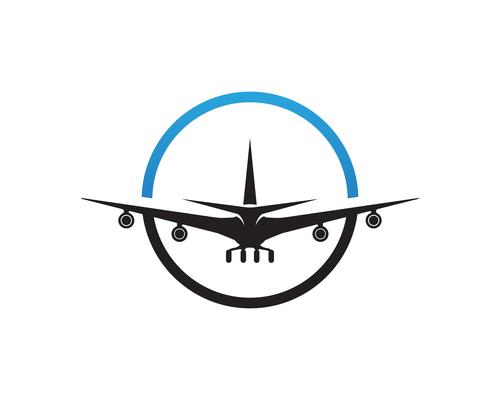British Columbia (BC) is taking significant strides to enhance the quality of postsecondary education in the region. The Ministry of Post-Secondary Education and Future Skills of BC announced Phase 2 of its International Education Framework on July 15, marking a substantial development in their ongoing efforts to ensure a high-quality and supportive educational environment for both domestic and international students. BC New Measures
Recap of Phase 1
Phase 1 of the International Education Framework, launched earlier in 2024, laid the foundation for substantial changes across public and private degree-granting institutions and private training institutions. This initial phase included a moratorium on new approvals for institutions seeking to enroll international students until 2026. The goal was to eliminate exploitative practices and improve the overall quality of postsecondary education in BC. BC New Measures
Key changes in Phase 1 included:
- Enhanced compliance and enforcement measures.
- Higher standards for private degree programs.
- New language requirements for private training institutions.
- Increased tuition transparency for public postsecondary institutions.

The Scope of International Education in BC
BC plays a pivotal role in Canada’s international education sector. In 2023, the province hosted over 217,600 international postsecondary students from more than 150 countries, making up about 20% of Canada’s international student population. This includes approximately 111,900 students in public institutions and 105,700 in private institutions. Given these numbers, maintaining high standards and robust support systems for international students is crucial.
Key Features of Phase 2
Building on the foundation of Phase 1, Phase 2 introduces further measures to ensure the quality and integrity of postsecondary education in BC. Central to these efforts is the enhancement of the Education Quality Assurance (EQA) designation, which is mandatory for all institutions enrolling international students. New requirements under this phase include:
In-Person Instruction:
Institutions must deliver at least 50% of their programs in person to international students, ensuring a more engaging and effective learning experience.
Support Staff:
Institutions are required to have dedicated staff to support international students, addressing their unique needs and challenges.
Compliance Reporting:
Institutions must remain compliant with Immigration, Refugees, and Citizenship Canada (IRCC) reporting standards.
Code of Practice:
A new Code of Practice for EQA-designated institutions mandates clear and accurate marketing, accountability for education agents, transparency in tuition, housing assistance, academic support, and measures to ensure student health and safety.
Reactions from Educational Institutions
The announcement of Phase 2 has elicited various responses from educational institutions across BC. Carolyn Russel, Vice President of Students at Vancouver Island University, expressed her enthusiasm for the new phase, highlighting its role in providing a consistent experience for international students across the province. She believes these measures will set BC apart as a preferred destination for international students.
Vinnie Nobre, Vice President of Canadian Operations at ILSC Education Group, which includes ILSC Language Schools and Greystone College, echoed Russel’s sentiment. He views the framework as an exciting opportunity and supports the government’s commitment to upholding high standards and ensuring a positive experience for all students in BC.
Specific Changes for Public and Private Institutions
Phase 2 introduces specific changes for both public and private institutions:

Public Institutions:
Cap on International Student Enrollments:
International student enrollments will be capped at 30% of the student body.
Tuition Fee Transparency:
Institutions are required to maintain transparency in their tuition fees.
Strategic Planning:
Institutions must produce an international education strategic plan.
Private Degree-Granting Institutions:
Increased Fees:
These institutions will face increased annual, application, and review fees.
Labor Market Alignment:
Degree programs must align with labor market needs.
Enrollment Management:
Institutions are required to manage enrollment in a manner appropriate for their infrastructure, student resources, and services.
Private Training Institutions:
Government Fees and Standards:
These institutions, including language schools registered under the Private Training Act, will face increased government fees and higher program content standards.
Student Protections:
New measures include more generous refund policies, shorter maximum contract terms, and a ban on high-pressure sales and recruitment tactics.
Future Directions and Recommendations
Looking ahead, stakeholders in the sector have proposed additional ideas for supporting international education in BC. Angela Johnston emphasizes the importance of increased quality assurance activities and regular site visits to maintain the integrity of the international student program in Canada. She also highlights the need for ongoing engagement and consultation for the successful implementation of sector-wide quality standards.
Vinnie Nobre recommends complementary measures to the existing framework, such as increased collaboration opportunities between public and private institutions, streamlined visa and immigration processes, regular feedback mechanisms from international students and institutions, and support for professional development of educators and staff.
Carolyn Russel underscores the importance of transparency and communication with prospective international students about the EQA. She believes that increased awareness will assure students that BC is a top destination for postsecondary education, dedicated to protecting their interests and ensuring a positive experience.
Conclusion: British Columbia’s Phase 2 of the International Education Framework represents a significant step forward in enhancing the quality and integrity of postsecondary education in the province. By addressing key areas such as compliance, support for international students, and transparency, these measures aim to create a more equitable and high-quality educational environment. The reactions from educational institutions underscore the widespread support for these initiatives, with many seeing them as a means to set BC apart as a premier destination for international students.

Disclaimer:
The information provided in this blog post is based on the announcement and subsequent details regarding the International Education Framework in British Columbia as of July 15, 2024. While every effort has been made to ensure the accuracy of the content, the rapidly evolving nature of education policies and regulations means that changes may occur.
Source: thepienews.com
Get Free Expert Advice: Are you ready to embark on your next adventure? Whether you’re seeking a work permit, tourist visa, or study opportunities in Canada or other countries, we’re here to help! Contact us today to learn how our expert services can simplify your journey and turn your dreams into reality. Reach out now and let’s start planning your future together!
- Canada Citizenship Requirements: Everything You Need to Know
- Canada’s New Visa Rules: What It Means for Indian Students
- Navigating Student Visa Regulations for Studying in the US, UK, Australia, and Canada
Also read:
- UK Study Visa Approved Without IELTS – Even After a 5-Year Study Gap!
- 10 Most Budget-Friendly Countries for Indian Students to Study Abroad
- Discover the Best Time to Visit Canada: A Complete Guide for Your Dream Adventure
- Navigating Post-Study Work Opportunities & Tuition Fees: A New Era for International Students in the UK, US, Canada, and Europe
- Exciting News: Malaysia Extends Visa-Free Entry for Indian Nationals Until 2026!
 Need expert Advise ?
Need expert Advise ?
